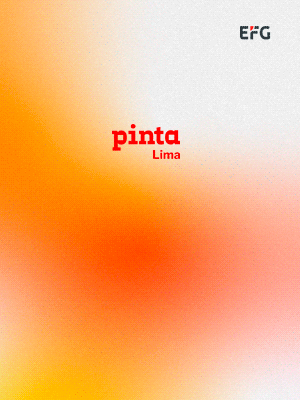NAMING NATURES EXPLORES THE COLONIAL LEGACY OF NATURAL HISTORY COLLECTIONS
The Naming Natures: Natural History and Colonial Legacy art-science exhibition, supported by the Swiss National Science Foundation and the Federal Institute of Technology in Zurich, takes a critical look at natural history collections from colonial settings, combining scientific, historical, and museographic approaches.
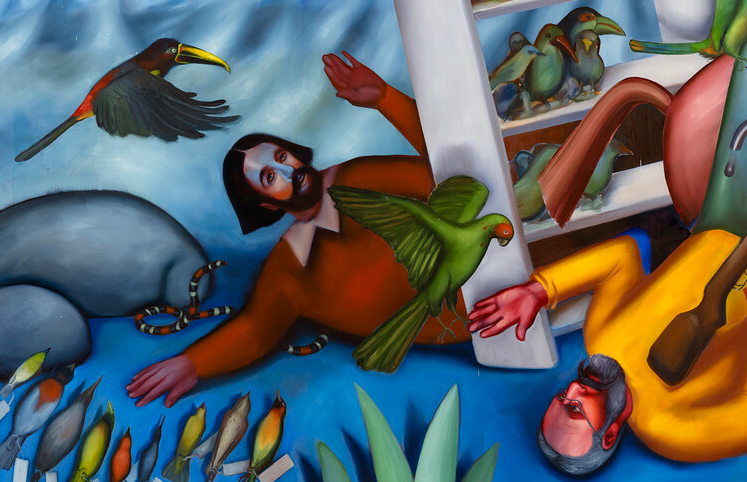
In 1838, Swiss naturalist Johann Jakob von Tschudi (1818–89), commissioned by the Natural History Museum of Neuchâtel, sailed to Peru on a merchant ship filled with Indienne fabrics, champagne, and watches. During his journey of five years, he hunted and prepared over a thousand specimens, which he sent to Neuchâtel. This story is not unique: many European museums have collections acquired in a colonial context.
Is it still possible to exhibit these collections? And if so, how can they be presented differently without exoticizing or glorifying the figure of the “great men of science”? What responsibility do museums have towards the communities concerned?
The exhibition Naming Natures: Natural History and Colonial Legacy features archives, historical objects, and specimens, as well as works by contemporary artists from Latin America and Switzerland. It questions the separation between nature and culture and reflects on the forms that repair processes can take. It highlights the appropriation of natural heritage by Western scientists, often without regard for indigenous heritage or expertise. This power imbalance persists to this day, underlining the need to facilitate intercultural partnerships at a time when the environment and society are undergoing immense change.
-
María José Murillo & Danitza Willka. Kawasaq salqa Pacha, 2024. Andean weaving. Courtesy of E-Flux.
-
María José Murillo & Danitza Willka. Kawasaq salqa Pacha, 2024. Andean weaving. Courtesy of E-Flux.
-
Enrique Casanto. Guerreros, 2024. Detail of painting. Courtesy of E-Flux.
-
Denise Bertschi. From the Andes to the Alps. Llamas and Alpacas. Video still, 2024. Courtesy of E-Flux.
-
Ivana de Vivanco. Tziih-tzih-tzi-tzi-tzi-tzi-tz-tz-ziiiiuuüüi/ último canto (detail), 2024. Triptych painting/ installation. Courtesy de E-Flux.
-
Uriel Orlow. Flora Peruana, 2024. Courtesy of E-Flux.
Naming Natures is co-curated by historian Dr. Tomás Bartoletti (ETH Zurich) and artist-researcher Dr. Denise Bertschi (Collegium Helveticum/ETH Zurich), in collaboration with the team of the Natural History Museum of Neuchâtel.
The exhibition is funded by the city of Neuchâtel and by the Agora grant from the Swiss National Science Foundation (SNSF) and supported by the professorship for the History of the Modern World at the Swiss Federal Institute of Technology (ETHZ).
With artistic contributions, curated by Denise Bertschi: Chonon Bensho, Denise Bertschi, Enrique Casanto, Pancho Fierro, Ximena Garrido-Lecca, Marco Herrera Fernández, Fabiano Kueva, María José Murillo, Uriel Orlow, Raúl Silva, Elizabeth Vazquez Arbulú, Ivana de Vivanco, Danitza Willka, Santiago Yahuarcan.
Related Topics
May interest you

Art at Americas Society will present Beatriz Cortez x rafa esparza: Earth and Cosmos on January 29, 2025, an exhibition showcasing the collaboration of two artists exploring ancient cultures of the Americas; this approach highlights the dialogues and exchanges between artists and their peers, which deeply shape and enrich their creative processes.
BEATRIZ CORTEZ X RAFA ESPARZA: EARTH AND COSMOS, A JOURNEY THROUGH THE ANCIENT CULTURES
Art at Americas Society will present Beatriz Cortez x rafa esparza: Earth and Cosmos on January 29, 2025, an exhibition showcasing the collaboration of two artists exploring ancient cultures of the Americas; this approach highlights the dialogues and exchanges between artists and their peers, which deeply shape and enrich their creative processes.

Art at Americas Society will present Beatriz Cortez x rafa esparza: Earth and Cosmos on January 29, 2025, an exhibition showcasing the collaboration of two artists exploring ancient cultures of the Americas; this approach highlights the dialogues and exchanges between artists and their peers, which deeply shape and enrich their creative processes.
BEATRIZ CORTEZ X RAFA ESPARZA: EARTH AND COSMOS, A JOURNEY THROUGH THE ANCIENT CULTURES
Art at Americas Society will present Beatriz Cortez x rafa esparza: Earth and Cosmos on January 29, 2025, an exhibition showcasing the collaboration of two artists exploring ancient cultures of the Americas; this approach highlights the dialogues and exchanges between artists and their peers, which deeply shape and enrich their creative processes.

CAF – Development Bank of Latin America and the Caribbean – and Pinta, an international platform for promoting Latin American art through fairs and artistic circuits across the region, have formalized a strategic alliance aimed at strengthening and promoting Latin American and Ibero-American art worldwide. This collaboration will culminate in a prominent Art Week to be held in Panama City in May 2025, a new initiative designed to position regional culture on the global stage.
CAF AND PINTA JOIN FORCES TO PROMOTE LATIN AMERICAN ART
CAF – Development Bank of Latin America and the Caribbean – and Pinta, an international platform for promoting Latin American art through fairs and artistic circuits across the region, have formalized a strategic alliance aimed at strengthening and promoting Latin American and Ibero-American art worldwide. This collaboration will culminate in a prominent Art Week to be held in Panama City in May 2025, a new initiative designed to position regional culture on the global stage.
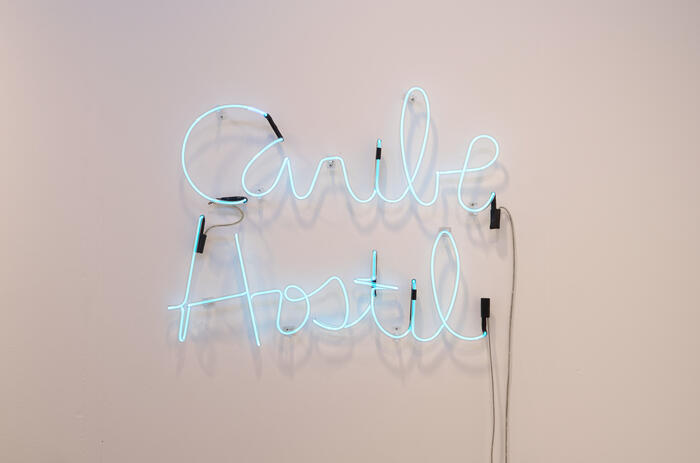
Pinta Miami celebrated its 2024 edition from December 5th to 8th, 2024 with more than 16,500 visitors, 45 galleries and 14 countries present. The fair at The Hangar, Coconut Grove led to good sales –where over 90% of the galleries reported sales– and enthusiastic overall attendance providing a true exchange between private, public spheres and opportunities for artists and galleries.
PINTA MIAMI: LATIN AMERICA FROM NORTH TO SOUTH
Pinta Miami celebrated its 2024 edition from December 5th to 8th, 2024 with more than 16,500 visitors, 45 galleries and 14 countries present. The fair at The Hangar, Coconut Grove led to good sales –where over 90% of the galleries reported sales– and enthusiastic overall attendance providing a true exchange between private, public spheres and opportunities for artists and galleries.

The Gerhardt Braun gallery is showing the second solo exhibition of Martín Mas (Uruguay, 1974) at its Palma de Mallorca headquarters. The Matter Matters presents a new return of the artist with Balearic roots to wood, his main working medium. Although this comeback is not new but recurrent over the last few years, on each occasion a profound productive relationship is confirmed that leads to the creation of works of apparent simplicity, although with a complex base, in which geometric forms, clear lines and organic substrates predominate.
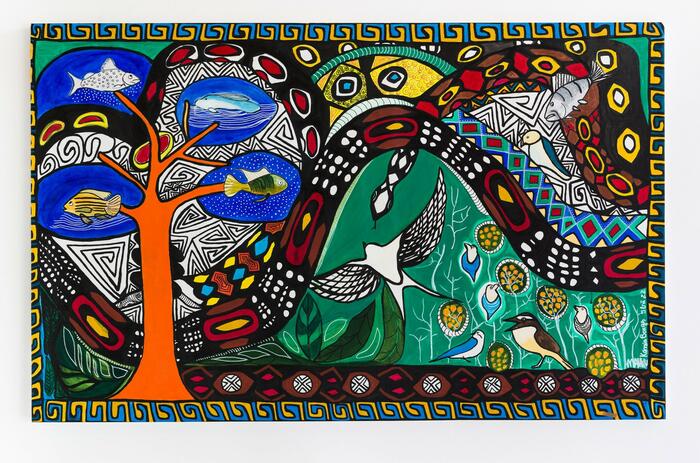
The CCCB (Center of Contemporary Culture of Barcelona) dedicates a wide, meticulous and interesting exhibition that takes us into the natural and cultural heritage of the Amazon, with special emphasis on the art and thought of the cities and indigenous communities of the region. Amazonia. The Ancestral Future brings to the table a detailed vision of artistic practices and Amazonian culture through the work of an extensive list of artists who produce around their thinking and relationship with nature.
A COMPLETE VISION TO THE CULTURAL AMAZON AT CCCB
The CCCB (Center of Contemporary Culture of Barcelona) dedicates a wide, meticulous and interesting exhibition that takes us into the natural and cultural heritage of the Amazon, with special emphasis on the art and thought of the cities and indigenous communities of the region. Amazonia. The Ancestral Future brings to the table a detailed vision of artistic practices and Amazonian culture through the work of an extensive list of artists who produce around their thinking and relationship with nature.

Milan hosts an extraordinary exhibition marking the bicentenary of Peru’s independence, the 150th anniversary of Italy-Peru diplomatic ties, and the bicentenary of Antonio Raimondi, a Milanese explorer who greatly contributed to the country. Organized with the Consulate General of Peru, the display at MUDEC’s Agora highlights key moments in its liberation through museum artifacts.
EXPLORING PERU AND ITALY: A JOURNEY THROUGH SHARED HISTORY
Milan hosts an extraordinary exhibition marking the bicentenary of Peru’s independence, the 150th anniversary of Italy-Peru diplomatic ties, and the bicentenary of Antonio Raimondi, a Milanese explorer who greatly contributed to the country. Organized with the Consulate General of Peru, the display at MUDEC’s Agora highlights key moments in its liberation through museum artifacts.
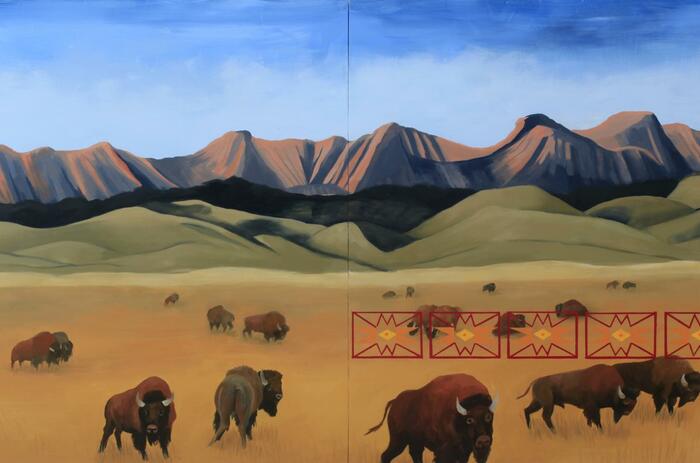
In February, an unprecedented survey of contemporary Native American art curated by Jaune Quick-to-See Smith (Citizen of the Confederated Salish and Kootenai Nation) opens at the Zimmerli Art Museum at Rutgers University—New Brunswick.
INDIGENOUS IDENTITIES: A GREAT ART EXHIBITION
In February, an unprecedented survey of contemporary Native American art curated by Jaune Quick-to-See Smith (Citizen of the Confederated Salish and Kootenai Nation) opens at the Zimmerli Art Museum at Rutgers University—New Brunswick.

Art at Americas Society will present Beatriz Cortez x rafa esparza: Earth and Cosmos on January 29, 2025, an exhibition showcasing the collaboration of two artists exploring ancient cultures of the Americas; this approach highlights the dialogues and exchanges between artists and their peers, which deeply shape and enrich their creative processes.
BEATRIZ CORTEZ X RAFA ESPARZA: EARTH AND COSMOS, A JOURNEY THROUGH THE ANCIENT CULTURES
Art at Americas Society will present Beatriz Cortez x rafa esparza: Earth and Cosmos on January 29, 2025, an exhibition showcasing the collaboration of two artists exploring ancient cultures of the Americas; this approach highlights the dialogues and exchanges between artists and their peers, which deeply shape and enrich their creative processes.

CAF – Development Bank of Latin America and the Caribbean – and Pinta, an international platform for promoting Latin American art through fairs and artistic circuits across the region, have formalized a strategic alliance aimed at strengthening and promoting Latin American and Ibero-American art worldwide. This collaboration will culminate in a prominent Art Week to be held in Panama City in May 2025, a new initiative designed to position regional culture on the global stage.
CAF AND PINTA JOIN FORCES TO PROMOTE LATIN AMERICAN ART
CAF – Development Bank of Latin America and the Caribbean – and Pinta, an international platform for promoting Latin American art through fairs and artistic circuits across the region, have formalized a strategic alliance aimed at strengthening and promoting Latin American and Ibero-American art worldwide. This collaboration will culminate in a prominent Art Week to be held in Panama City in May 2025, a new initiative designed to position regional culture on the global stage.

Pinta Miami celebrated its 2024 edition from December 5th to 8th, 2024 with more than 16,500 visitors, 45 galleries and 14 countries present. The fair at The Hangar, Coconut Grove led to good sales –where over 90% of the galleries reported sales– and enthusiastic overall attendance providing a true exchange between private, public spheres and opportunities for artists and galleries.
PINTA MIAMI: LATIN AMERICA FROM NORTH TO SOUTH
Pinta Miami celebrated its 2024 edition from December 5th to 8th, 2024 with more than 16,500 visitors, 45 galleries and 14 countries present. The fair at The Hangar, Coconut Grove led to good sales –where over 90% of the galleries reported sales– and enthusiastic overall attendance providing a true exchange between private, public spheres and opportunities for artists and galleries.

The Gerhardt Braun gallery is showing the second solo exhibition of Martín Mas (Uruguay, 1974) at its Palma de Mallorca headquarters. The Matter Matters presents a new return of the artist with Balearic roots to wood, his main working medium. Although this comeback is not new but recurrent over the last few years, on each occasion a profound productive relationship is confirmed that leads to the creation of works of apparent simplicity, although with a complex base, in which geometric forms, clear lines and organic substrates predominate.

The CCCB (Center of Contemporary Culture of Barcelona) dedicates a wide, meticulous and interesting exhibition that takes us into the natural and cultural heritage of the Amazon, with special emphasis on the art and thought of the cities and indigenous communities of the region. Amazonia. The Ancestral Future brings to the table a detailed vision of artistic practices and Amazonian culture through the work of an extensive list of artists who produce around their thinking and relationship with nature.
A COMPLETE VISION TO THE CULTURAL AMAZON AT CCCB
The CCCB (Center of Contemporary Culture of Barcelona) dedicates a wide, meticulous and interesting exhibition that takes us into the natural and cultural heritage of the Amazon, with special emphasis on the art and thought of the cities and indigenous communities of the region. Amazonia. The Ancestral Future brings to the table a detailed vision of artistic practices and Amazonian culture through the work of an extensive list of artists who produce around their thinking and relationship with nature.

Milan hosts an extraordinary exhibition marking the bicentenary of Peru’s independence, the 150th anniversary of Italy-Peru diplomatic ties, and the bicentenary of Antonio Raimondi, a Milanese explorer who greatly contributed to the country. Organized with the Consulate General of Peru, the display at MUDEC’s Agora highlights key moments in its liberation through museum artifacts.
EXPLORING PERU AND ITALY: A JOURNEY THROUGH SHARED HISTORY
Milan hosts an extraordinary exhibition marking the bicentenary of Peru’s independence, the 150th anniversary of Italy-Peru diplomatic ties, and the bicentenary of Antonio Raimondi, a Milanese explorer who greatly contributed to the country. Organized with the Consulate General of Peru, the display at MUDEC’s Agora highlights key moments in its liberation through museum artifacts.

In February, an unprecedented survey of contemporary Native American art curated by Jaune Quick-to-See Smith (Citizen of the Confederated Salish and Kootenai Nation) opens at the Zimmerli Art Museum at Rutgers University—New Brunswick.
INDIGENOUS IDENTITIES: A GREAT ART EXHIBITION
In February, an unprecedented survey of contemporary Native American art curated by Jaune Quick-to-See Smith (Citizen of the Confederated Salish and Kootenai Nation) opens at the Zimmerli Art Museum at Rutgers University—New Brunswick.

Art at Americas Society will present Beatriz Cortez x rafa esparza: Earth and Cosmos on January 29, 2025, an exhibition showcasing the collaboration of two artists exploring ancient cultures of the Americas; this approach highlights the dialogues and exchanges between artists and their peers, which deeply shape and enrich their creative processes.
BEATRIZ CORTEZ X RAFA ESPARZA: EARTH AND COSMOS, A JOURNEY THROUGH THE ANCIENT CULTURES
Art at Americas Society will present Beatriz Cortez x rafa esparza: Earth and Cosmos on January 29, 2025, an exhibition showcasing the collaboration of two artists exploring ancient cultures of the Americas; this approach highlights the dialogues and exchanges between artists and their peers, which deeply shape and enrich their creative processes.

CAF – Development Bank of Latin America and the Caribbean – and Pinta, an international platform for promoting Latin American art through fairs and artistic circuits across the region, have formalized a strategic alliance aimed at strengthening and promoting Latin American and Ibero-American art worldwide. This collaboration will culminate in a prominent Art Week to be held in Panama City in May 2025, a new initiative designed to position regional culture on the global stage.
CAF AND PINTA JOIN FORCES TO PROMOTE LATIN AMERICAN ART
CAF – Development Bank of Latin America and the Caribbean – and Pinta, an international platform for promoting Latin American art through fairs and artistic circuits across the region, have formalized a strategic alliance aimed at strengthening and promoting Latin American and Ibero-American art worldwide. This collaboration will culminate in a prominent Art Week to be held in Panama City in May 2025, a new initiative designed to position regional culture on the global stage.

Pinta Miami celebrated its 2024 edition from December 5th to 8th, 2024 with more than 16,500 visitors, 45 galleries and 14 countries present. The fair at The Hangar, Coconut Grove led to good sales –where over 90% of the galleries reported sales– and enthusiastic overall attendance providing a true exchange between private, public spheres and opportunities for artists and galleries.
PINTA MIAMI: LATIN AMERICA FROM NORTH TO SOUTH
Pinta Miami celebrated its 2024 edition from December 5th to 8th, 2024 with more than 16,500 visitors, 45 galleries and 14 countries present. The fair at The Hangar, Coconut Grove led to good sales –where over 90% of the galleries reported sales– and enthusiastic overall attendance providing a true exchange between private, public spheres and opportunities for artists and galleries.

The Gerhardt Braun gallery is showing the second solo exhibition of Martín Mas (Uruguay, 1974) at its Palma de Mallorca headquarters. The Matter Matters presents a new return of the artist with Balearic roots to wood, his main working medium. Although this comeback is not new but recurrent over the last few years, on each occasion a profound productive relationship is confirmed that leads to the creation of works of apparent simplicity, although with a complex base, in which geometric forms, clear lines and organic substrates predominate.

The CCCB (Center of Contemporary Culture of Barcelona) dedicates a wide, meticulous and interesting exhibition that takes us into the natural and cultural heritage of the Amazon, with special emphasis on the art and thought of the cities and indigenous communities of the region. Amazonia. The Ancestral Future brings to the table a detailed vision of artistic practices and Amazonian culture through the work of an extensive list of artists who produce around their thinking and relationship with nature.
A COMPLETE VISION TO THE CULTURAL AMAZON AT CCCB
The CCCB (Center of Contemporary Culture of Barcelona) dedicates a wide, meticulous and interesting exhibition that takes us into the natural and cultural heritage of the Amazon, with special emphasis on the art and thought of the cities and indigenous communities of the region. Amazonia. The Ancestral Future brings to the table a detailed vision of artistic practices and Amazonian culture through the work of an extensive list of artists who produce around their thinking and relationship with nature.

Milan hosts an extraordinary exhibition marking the bicentenary of Peru’s independence, the 150th anniversary of Italy-Peru diplomatic ties, and the bicentenary of Antonio Raimondi, a Milanese explorer who greatly contributed to the country. Organized with the Consulate General of Peru, the display at MUDEC’s Agora highlights key moments in its liberation through museum artifacts.
EXPLORING PERU AND ITALY: A JOURNEY THROUGH SHARED HISTORY
Milan hosts an extraordinary exhibition marking the bicentenary of Peru’s independence, the 150th anniversary of Italy-Peru diplomatic ties, and the bicentenary of Antonio Raimondi, a Milanese explorer who greatly contributed to the country. Organized with the Consulate General of Peru, the display at MUDEC’s Agora highlights key moments in its liberation through museum artifacts.

In February, an unprecedented survey of contemporary Native American art curated by Jaune Quick-to-See Smith (Citizen of the Confederated Salish and Kootenai Nation) opens at the Zimmerli Art Museum at Rutgers University—New Brunswick.
INDIGENOUS IDENTITIES: A GREAT ART EXHIBITION
In February, an unprecedented survey of contemporary Native American art curated by Jaune Quick-to-See Smith (Citizen of the Confederated Salish and Kootenai Nation) opens at the Zimmerli Art Museum at Rutgers University—New Brunswick.

Art at Americas Society will present Beatriz Cortez x rafa esparza: Earth and Cosmos on January 29, 2025, an exhibition showcasing the collaboration of two artists exploring ancient cultures of the Americas; this approach highlights the dialogues and exchanges between artists and their peers, which deeply shape and enrich their creative processes.
BEATRIZ CORTEZ X RAFA ESPARZA: EARTH AND COSMOS, A JOURNEY THROUGH THE ANCIENT CULTURES
Art at Americas Society will present Beatriz Cortez x rafa esparza: Earth and Cosmos on January 29, 2025, an exhibition showcasing the collaboration of two artists exploring ancient cultures of the Americas; this approach highlights the dialogues and exchanges between artists and their peers, which deeply shape and enrich their creative processes.

CAF – Development Bank of Latin America and the Caribbean – and Pinta, an international platform for promoting Latin American art through fairs and artistic circuits across the region, have formalized a strategic alliance aimed at strengthening and promoting Latin American and Ibero-American art worldwide. This collaboration will culminate in a prominent Art Week to be held in Panama City in May 2025, a new initiative designed to position regional culture on the global stage.
CAF AND PINTA JOIN FORCES TO PROMOTE LATIN AMERICAN ART
CAF – Development Bank of Latin America and the Caribbean – and Pinta, an international platform for promoting Latin American art through fairs and artistic circuits across the region, have formalized a strategic alliance aimed at strengthening and promoting Latin American and Ibero-American art worldwide. This collaboration will culminate in a prominent Art Week to be held in Panama City in May 2025, a new initiative designed to position regional culture on the global stage.

Pinta Miami celebrated its 2024 edition from December 5th to 8th, 2024 with more than 16,500 visitors, 45 galleries and 14 countries present. The fair at The Hangar, Coconut Grove led to good sales –where over 90% of the galleries reported sales– and enthusiastic overall attendance providing a true exchange between private, public spheres and opportunities for artists and galleries.
PINTA MIAMI: LATIN AMERICA FROM NORTH TO SOUTH
Pinta Miami celebrated its 2024 edition from December 5th to 8th, 2024 with more than 16,500 visitors, 45 galleries and 14 countries present. The fair at The Hangar, Coconut Grove led to good sales –where over 90% of the galleries reported sales– and enthusiastic overall attendance providing a true exchange between private, public spheres and opportunities for artists and galleries.

The Gerhardt Braun gallery is showing the second solo exhibition of Martín Mas (Uruguay, 1974) at its Palma de Mallorca headquarters. The Matter Matters presents a new return of the artist with Balearic roots to wood, his main working medium. Although this comeback is not new but recurrent over the last few years, on each occasion a profound productive relationship is confirmed that leads to the creation of works of apparent simplicity, although with a complex base, in which geometric forms, clear lines and organic substrates predominate.

The CCCB (Center of Contemporary Culture of Barcelona) dedicates a wide, meticulous and interesting exhibition that takes us into the natural and cultural heritage of the Amazon, with special emphasis on the art and thought of the cities and indigenous communities of the region. Amazonia. The Ancestral Future brings to the table a detailed vision of artistic practices and Amazonian culture through the work of an extensive list of artists who produce around their thinking and relationship with nature.
A COMPLETE VISION TO THE CULTURAL AMAZON AT CCCB
The CCCB (Center of Contemporary Culture of Barcelona) dedicates a wide, meticulous and interesting exhibition that takes us into the natural and cultural heritage of the Amazon, with special emphasis on the art and thought of the cities and indigenous communities of the region. Amazonia. The Ancestral Future brings to the table a detailed vision of artistic practices and Amazonian culture through the work of an extensive list of artists who produce around their thinking and relationship with nature.

Milan hosts an extraordinary exhibition marking the bicentenary of Peru’s independence, the 150th anniversary of Italy-Peru diplomatic ties, and the bicentenary of Antonio Raimondi, a Milanese explorer who greatly contributed to the country. Organized with the Consulate General of Peru, the display at MUDEC’s Agora highlights key moments in its liberation through museum artifacts.
EXPLORING PERU AND ITALY: A JOURNEY THROUGH SHARED HISTORY
Milan hosts an extraordinary exhibition marking the bicentenary of Peru’s independence, the 150th anniversary of Italy-Peru diplomatic ties, and the bicentenary of Antonio Raimondi, a Milanese explorer who greatly contributed to the country. Organized with the Consulate General of Peru, the display at MUDEC’s Agora highlights key moments in its liberation through museum artifacts.

In February, an unprecedented survey of contemporary Native American art curated by Jaune Quick-to-See Smith (Citizen of the Confederated Salish and Kootenai Nation) opens at the Zimmerli Art Museum at Rutgers University—New Brunswick.
INDIGENOUS IDENTITIES: A GREAT ART EXHIBITION
In February, an unprecedented survey of contemporary Native American art curated by Jaune Quick-to-See Smith (Citizen of the Confederated Salish and Kootenai Nation) opens at the Zimmerli Art Museum at Rutgers University—New Brunswick.

Art at Americas Society will present Beatriz Cortez x rafa esparza: Earth and Cosmos on January 29, 2025, an exhibition showcasing the collaboration of two artists exploring ancient cultures of the Americas; this approach highlights the dialogues and exchanges between artists and their peers, which deeply shape and enrich their creative processes.
BEATRIZ CORTEZ X RAFA ESPARZA: EARTH AND COSMOS, A JOURNEY THROUGH THE ANCIENT CULTURES
Art at Americas Society will present Beatriz Cortez x rafa esparza: Earth and Cosmos on January 29, 2025, an exhibition showcasing the collaboration of two artists exploring ancient cultures of the Americas; this approach highlights the dialogues and exchanges between artists and their peers, which deeply shape and enrich their creative processes.

CAF – Development Bank of Latin America and the Caribbean – and Pinta, an international platform for promoting Latin American art through fairs and artistic circuits across the region, have formalized a strategic alliance aimed at strengthening and promoting Latin American and Ibero-American art worldwide. This collaboration will culminate in a prominent Art Week to be held in Panama City in May 2025, a new initiative designed to position regional culture on the global stage.
CAF AND PINTA JOIN FORCES TO PROMOTE LATIN AMERICAN ART
CAF – Development Bank of Latin America and the Caribbean – and Pinta, an international platform for promoting Latin American art through fairs and artistic circuits across the region, have formalized a strategic alliance aimed at strengthening and promoting Latin American and Ibero-American art worldwide. This collaboration will culminate in a prominent Art Week to be held in Panama City in May 2025, a new initiative designed to position regional culture on the global stage.

Pinta Miami celebrated its 2024 edition from December 5th to 8th, 2024 with more than 16,500 visitors, 45 galleries and 14 countries present. The fair at The Hangar, Coconut Grove led to good sales –where over 90% of the galleries reported sales– and enthusiastic overall attendance providing a true exchange between private, public spheres and opportunities for artists and galleries.
PINTA MIAMI: LATIN AMERICA FROM NORTH TO SOUTH
Pinta Miami celebrated its 2024 edition from December 5th to 8th, 2024 with more than 16,500 visitors, 45 galleries and 14 countries present. The fair at The Hangar, Coconut Grove led to good sales –where over 90% of the galleries reported sales– and enthusiastic overall attendance providing a true exchange between private, public spheres and opportunities for artists and galleries.

The Gerhardt Braun gallery is showing the second solo exhibition of Martín Mas (Uruguay, 1974) at its Palma de Mallorca headquarters. The Matter Matters presents a new return of the artist with Balearic roots to wood, his main working medium. Although this comeback is not new but recurrent over the last few years, on each occasion a profound productive relationship is confirmed that leads to the creation of works of apparent simplicity, although with a complex base, in which geometric forms, clear lines and organic substrates predominate.

The CCCB (Center of Contemporary Culture of Barcelona) dedicates a wide, meticulous and interesting exhibition that takes us into the natural and cultural heritage of the Amazon, with special emphasis on the art and thought of the cities and indigenous communities of the region. Amazonia. The Ancestral Future brings to the table a detailed vision of artistic practices and Amazonian culture through the work of an extensive list of artists who produce around their thinking and relationship with nature.
A COMPLETE VISION TO THE CULTURAL AMAZON AT CCCB
The CCCB (Center of Contemporary Culture of Barcelona) dedicates a wide, meticulous and interesting exhibition that takes us into the natural and cultural heritage of the Amazon, with special emphasis on the art and thought of the cities and indigenous communities of the region. Amazonia. The Ancestral Future brings to the table a detailed vision of artistic practices and Amazonian culture through the work of an extensive list of artists who produce around their thinking and relationship with nature.

Milan hosts an extraordinary exhibition marking the bicentenary of Peru’s independence, the 150th anniversary of Italy-Peru diplomatic ties, and the bicentenary of Antonio Raimondi, a Milanese explorer who greatly contributed to the country. Organized with the Consulate General of Peru, the display at MUDEC’s Agora highlights key moments in its liberation through museum artifacts.
EXPLORING PERU AND ITALY: A JOURNEY THROUGH SHARED HISTORY
Milan hosts an extraordinary exhibition marking the bicentenary of Peru’s independence, the 150th anniversary of Italy-Peru diplomatic ties, and the bicentenary of Antonio Raimondi, a Milanese explorer who greatly contributed to the country. Organized with the Consulate General of Peru, the display at MUDEC’s Agora highlights key moments in its liberation through museum artifacts.

In February, an unprecedented survey of contemporary Native American art curated by Jaune Quick-to-See Smith (Citizen of the Confederated Salish and Kootenai Nation) opens at the Zimmerli Art Museum at Rutgers University—New Brunswick.
INDIGENOUS IDENTITIES: A GREAT ART EXHIBITION
In February, an unprecedented survey of contemporary Native American art curated by Jaune Quick-to-See Smith (Citizen of the Confederated Salish and Kootenai Nation) opens at the Zimmerli Art Museum at Rutgers University—New Brunswick.

